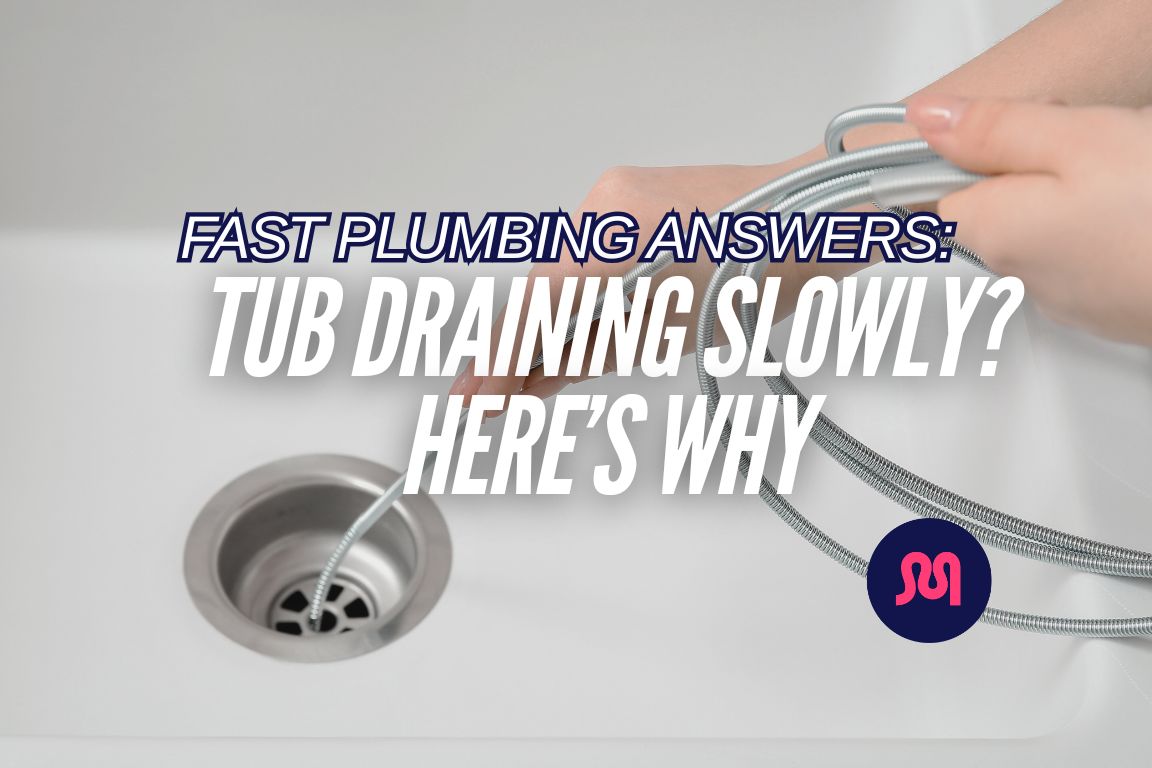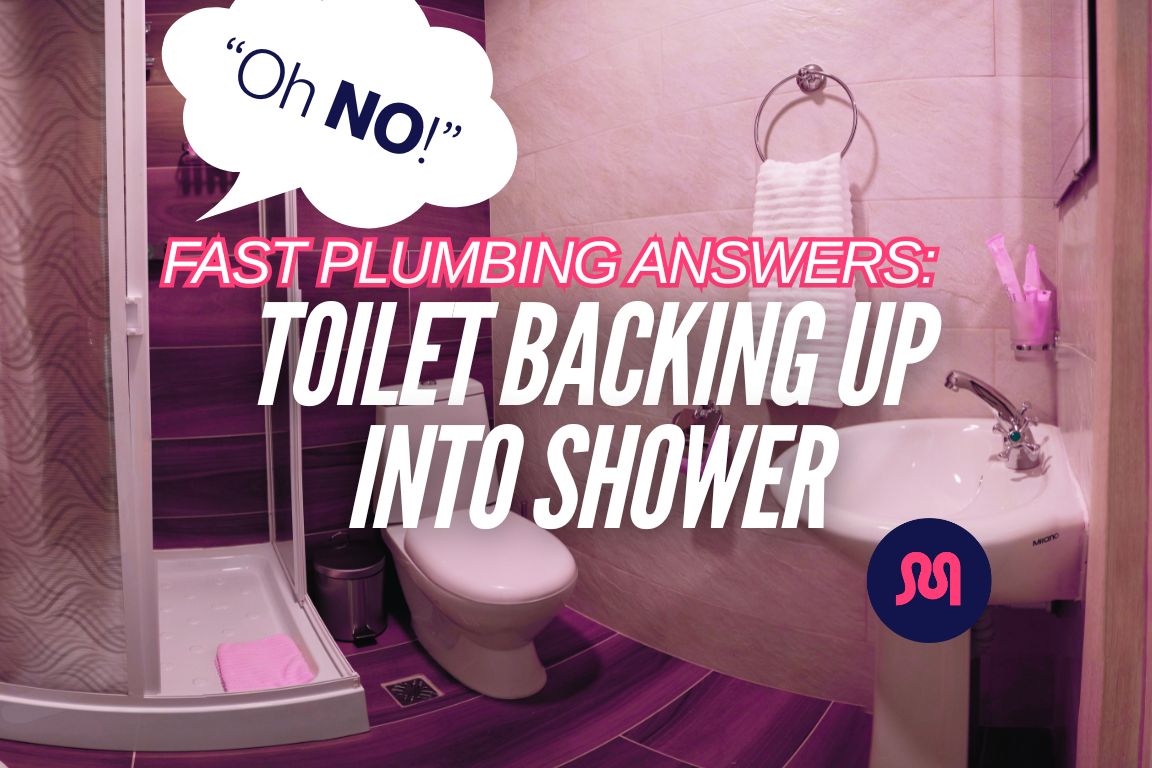Tank vs Tankless Water Heater: What's Best For Your Home?

table of contents
table of contents
For most homeowners, the choice between a tank vs tankless water heater comes down to space, efficiency and cost. But a true comparison of tankless and tank water heaters should go a bit deeper to include 7 points of comparison — including maintenance needs, average lifespan and ease of installation.
Tank water heaters are best for homeowners concerned with upfront costs who have high daily hot water consumption. Consumers who use less hot water, have smaller living spaces and are concerned with product lifespan should choose a tankless water heater.
Here are the key decision points our professional plumbers suggest you consider when making your purchase:
- How much hot water do you use per day? Tankless heaters offer energy efficient savings for homeowners who use under 50 gallons of hot water per day. Larger households opt for traditional water heaters, as tankless models don't have a standby hot water supply.
- Do you prefer upfront or long-term savings? Water heater installation and purchase are both cheaper upfront with a tank heater. Tankless heaters offer long-term savings with greater energy efficiency and longer lifespan.
- How much space do you have? Smaller living spaces benefit most from tankless units. While you won't have endless hot water, you'll save the maximum amount of space.
- Are maintenance costs a concern? Tankless heating systems usually have more complex maintenance needs. Tanks often simply need annual flushing and draining.
{{tankless-water-heater-installation="/services/tankless-water-heater-installation"}}
Key Differences Between Tank and Tankless Water Heaters
There are 7 primary differences between water heater tanks and tankless heaters:
- How they work: Tank water heaters store and heat water in a large tank for ready-to-use consumption. Tankless heaters heat water on demand, so it's prepared when you need it.
- Energy efficiency: Tankless water heaters are considered more energy efficient, as storage tank water heaters suffer from standby heat loss.
- Cost: A tank water heater is 40-60% cheaper upfront, but is easier to install and potentially cheaper over the long run due to less repair maintenance.
- Installation: A traditional tank water heater is simpler to install than most tankless heaters.
- Maintenance: A tankless system is generally harder to maintain due to more complex parts. Specific maintenance requirements rely on your fuel source (natural gas, electric or propane).
- Space: There's no beating a tankless unit for its space-saving advantages. A traditional water heater tank takes up substantially more space.
- Lifespan: Our water heater repair and replacement research indicates the average tankless model lives 5-8 years longer than a comparable tank water heater.
Tank vs Tankless Water Heaters: How They Work
The primary difference between tankless and tank water heaters is their operation — how they convert fuel source into hot water, whether or not they provide hot water storage, and how they deliver hot water to where you need it.
How do water heater tanks work?
Tank water heaters keep a reserve of hot water in their storage tanks and release it when you turn on a hot water tap.
Cold water enters your storage tank through a dip tube at the bottom. It is preheated by your fuel source — usually natural gas, electric or propane. Heat rises, so the hot water rises to the top of your tank. That hot water at the top is released for use when you turn on the tap.
Cold water is automatically pulled from your water supply line to refill the water used from the storage tank. This ensures a steady hot water supply for your home.
How do tankless water heaters work?
Tankless water heaters bypass the water storage step, heating water on demand as you “request” it from your taps.
Cold water enters your tankless heater when you turn on a hot water tap. The flow sensor in your unit tells your fuel converter (gas or electric) to heat the incoming water. The water is rapidly heated over coils within the system, and its high temperature is regulated by an on-board thermostat.
The freshly heated water is then delivered to the appropriate faucet in your home.
Tank vs Tankless Water Heaters: What’s More Efficient?
The U.S. Department of Energy finds that tankless water heaters are more energy efficient than comparable tank water heaters.
Tankless models are 24-34% more efficient in homes that use under 41 gallons of hot water per day, and 8-14% more efficient in homes with high daily hot water usage.
Of Note: Some of the energy efficiency benefits of a tankless water heater are lost in models that use a pilot light. Look for tankless models without a pilot light to reap the greatest reward on your investment.
Do Tank or Tankless Water Heaters Cost More?
Comparing tank vs tankless water heater costs is tricky — it depends if you define costs on upfront price, or long-term costs.
You'll spend less upfront on traditional tank water heater installation and product purchase. A standard quality 40-gallon electric tank water heater costs $500-$600 to purchase. Comparable electric tankless water heaters are $600-1,150.
The upfront cost disparity between natural gas tank and tankless heaters is even greater. It can cost 100-200%+ more to purchase and install a natural gas tankless water heater than a natural gas storage tank water heater.
Why Are Tankless Water Heaters Harder to Install?
Tankless heaters aren't inherently more difficult to install on their own — but they generally require significant changes to your existing plumbing system.
For starters, you'll need to find and set up a wall mount space for your new tankless heater. Many tankless models require upgrades to larger venting systems as well.
Natural gas tankless heaters need larger gas lines due to a higher BTU demand. Electric tankless units require specialized wiring, which often calls for both a licensed plumber and electrician to get involved on your installation job.
Tankless Water Heaters May Require More Maintenance
While all types of water heaters need routine inspection and maintenance, tankless water heaters need more maintenance than their counterparts.
Your tankless unit will require annual inspection of its fuel source (gas, electric or propane) as well as the components responsible for converting that fuel to heated water. This is in addition to routine maintenance like draining and flushing.
A storage tank water heater needs annual routine maintenance (called a 'descale) to clean buildup off the sensitive components of the tank.
Note for Tarrant County residents: Tankless heaters require routine inspection for hard water damage — a real issue in Fort Worth and surrounding towns. Consider installing a water softener to avoid scale buildup, as this can cause tankless units to lock up or malfunction.
Tankless Water Heaters Are Great in Small Spaces
Traditional tank water heaters simply can't compare to the space savings of a tankless heating system. The average 40 gallon storage water heater is roughly 5 feet tall and 1.75 feet in diameter. By contrast, a medium-sized tankless water heater is 1.5-2 feet tall and 14-16 inches wide.
In general, a tankless water heater saves at least 2-3 feet in height and 4-6 inches in depth over a heating tank with similar capacity.
Point-of-use tankless water heaters are designed to deliver heated water to a single appliance, like a shower or sink. These point-of-use units are even smaller — while they're severely limited in capacity, they're a consideration for heating water in a small apartment.
Tankless Units Last Longer Than Tank Water Heaters
Our internal water heater replacement and repair service data indicates that tankless units last 5-8 years longer than comparable tank heaters.
The Department of Energy agrees with our findings. They state the average tankless heater lasts 20+ years, while most storage tank water heater units last 10-15 years.
While tankless heaters are more expensive to purchase and install upfront, their longer lifespans mitigate the cost of purchase long-term.
Tank vs Tankless Water Heaters: Final Comparison
Fort Worth and Tarrant County homeowners who need a hot water heater should use our 7-step process to make the right decision for their household.
Choose a water heater tank if:
- You have a large household which uses multiple hot water sources at once
- You have enough space for a storage tank to handle your hot water demand
- You prefer lower upfront purchase and maintenance costs
Choose a tankless water heater if:
- You have a smaller household that benefits from less stored water and more efficient use
- You have space concerns that dictate a smaller water heater unit
- You find longer product lifespan more important than upfront costs
Have specific questions about a new water heater purchase or water heater installation in Fort Worth or Tarrant County, TX? Our friendly plumbing team would love to chat with you!
{{tankless-water-heater-installation="/services/tankless-water-heater-installation"}}
Common Q’s about Water Heaters
What are the most common tankless water heater repair types?
A majority of tankless water heater repairs (especially in DFW) involve one of these six key issues:
- Descaling due to mineral buildup
- Ignition system issues (blocked sensors)
- Blockages of vents
- Faulty flow sensors
- Leaks from a damaged heat exchanger or valves
- Damaged gas flexes and closed valves (gas units)




